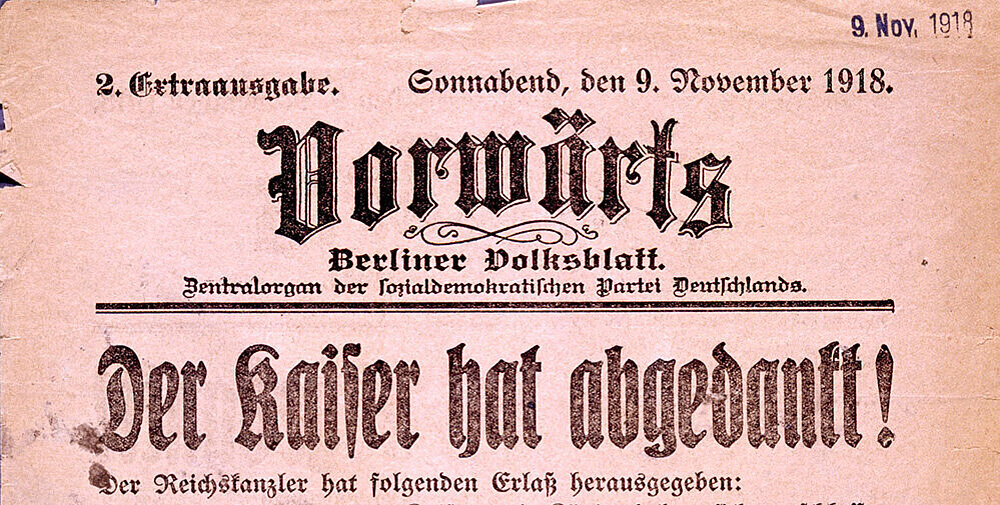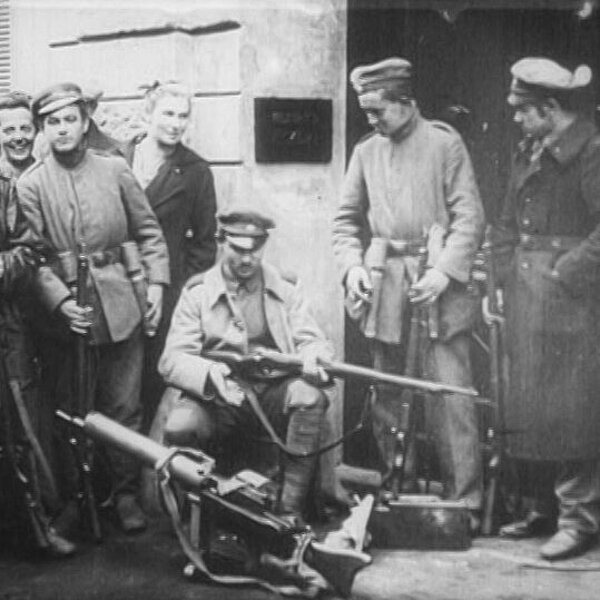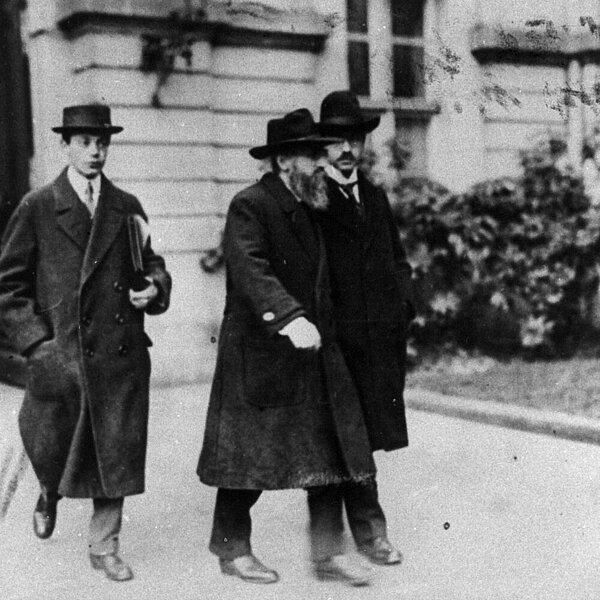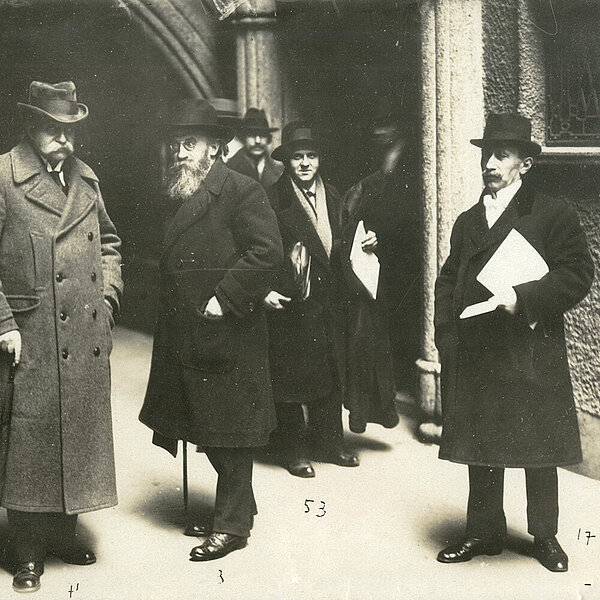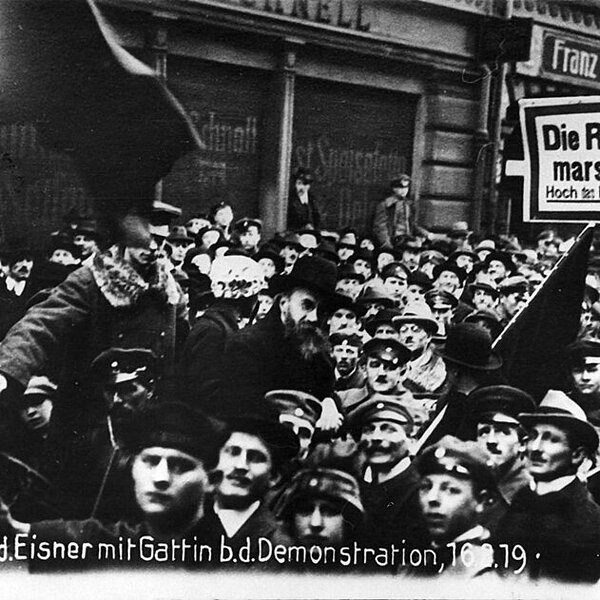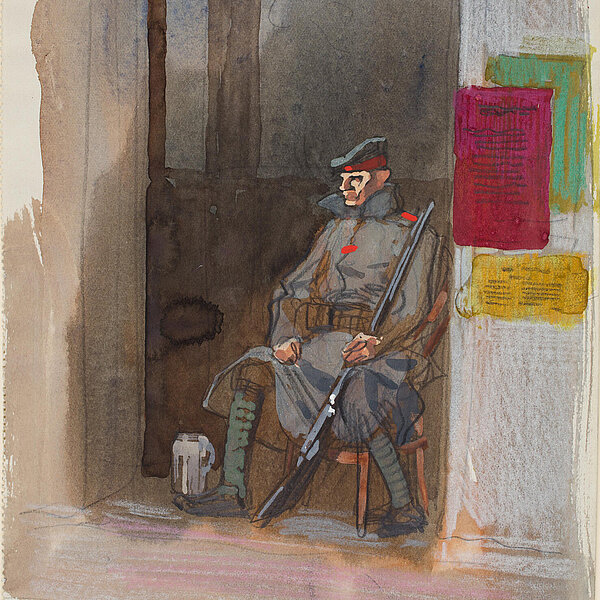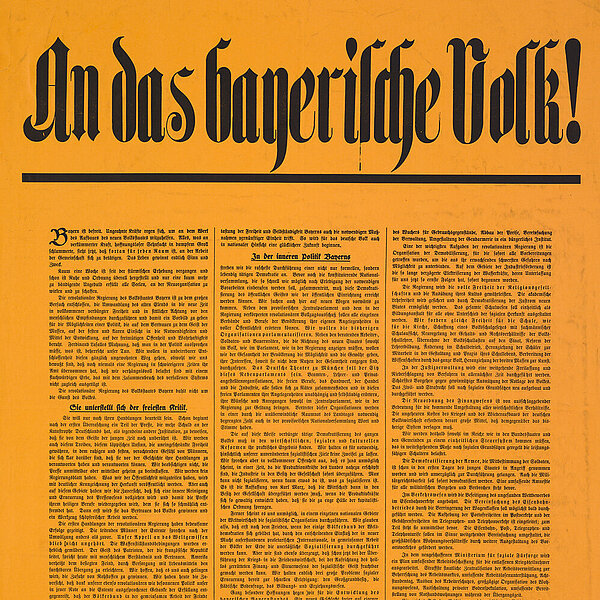Eisner continues to have faith in the unity and solidarity of the proletariat,
even though each side of the divided social democratic movement holds a different stance on the issue of peace.
Erhard Auer’s Majority Social Democratic Party (MSPD) wants to avoid a revolution at all costs, hoping to win concessions from the government in order to build a parliamentary monarchy peacefully. He attends a peace rally as his party’s main speaker, and then leads a walkout of its members.
Throughout the period since Kurt Eisner was released from custody in October 1918, his Independent Social Democratic Party of Germany (USPD) has been working towards starting a revolution and establishing a free people’s state. This is why his party calls for this peace rally.
Auer’s actions are an election campaign ploy to preserve existing state structures. He has stood against Eisner, his political opponent, with the backing of the royal ministerial bureaucracy.
Eisner uses the election campaign as a platform to gather support for the revolution. He has already prepared the ground and enlisted his allies. However, by the afternoon of 7 November 1918, he still has no way of knowing for sure whether his plan will succeed.
On the morning of November 8, the people of Munich woke to the news that “The Wittelsbach dynasty has been toppled! Bavaria is henceforth a Free State!” That afternoon, the Provisional National Council of the People’s State of Bavaria held its first session in the chamber of the state parliament. It comprised members of the workers’, soldiers’ and peasants’ councils, the SPD and Peasants’ League parliamentary groups from the old state parliament, and a handful of liberal deputies, including Professor Quidde. The new cabinet elected during this session was led by Eisner and included Social Democrats Johannes Hoffman (Education), Roßhaupter (Military Affairs), Auer (Home Affairs) and Timm (Justice), as well as independent Social Democrat Unterleitner (Social Affairs) and two bourgeois Ministers, Frauendorfer (Transport) and Professor Jaffé (Finance).
On November 9, the monarchist Ministers of the government overthrown by the revolution vacated their offices. As Kurt Eisner’s secretary, I accompanied him to the State Premier’s rooms at the Foreign Ministry. The red flag was flying from the spire of the Frauenkirche. The Workers’ and Soldiers’ Council had also seized political power in Berlin on November 9. The emperor had abdicated, the republic had been proclaimed and the Council of People’s Representatives had taken over the government. Then came the announcement of the harsh terms of the Armistice.
(Felix Fechenbach, Kurt Eisner the Revolutionary. A Personal Account, Berlin 1929)
However this future society will be organized and structured and whatever economic systems we conceive, people must be masters of their circumstances, not victims of their circumstances. People must be the masters of technology rather than slaves to machines. People must no longer merely be instruments for making profits – every worker should have a say in the work that they do.
We have always refused to paint a picture of what a future government might look like. A future government is not something you prophesy, it is something you create.
(Kurt Eisner, election speech to the Independents, 12 December 1918)
Plan Your Visit
Opening hours
Although the Münchner Stadtmuseum's exhibitions closed on January 8, 2024, for a complete renovation, the cinema and the Stadtcafé will remain open to visitors until June 2027.
Information to Von Parish Costume Library in Nymphenburg
Filmmuseum München – Screenings
Tuesday / Wednesday 6.30 pm and 9 pm
Thursday 7 pm
Friday / Saturday 6 pm and 9 pm
Sunday 6 pm
Contact
St.-Jakobs-Platz 1
80331 München
Phone +49-(0)89-233-22370
Fax +49-(0)89-233-25033
E-Mail stadtmuseum(at)muenchen.de
E-Mail filmmuseum(at)muenchen.de
Ticket reservation Phone +49-(0)89-233-24150

